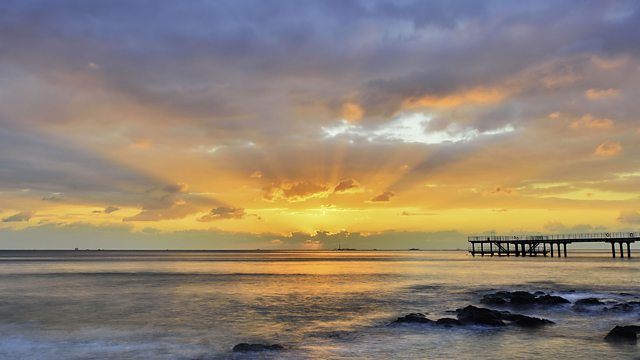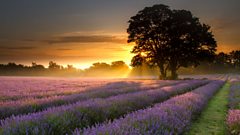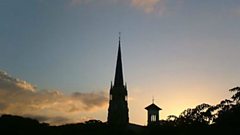Chine McDonald - 25/01/2025
Thought for the Day
Good morning,
Last night saw the final of the The Traitors. No spoilers here, but if you’ve not been glued to the hit 91�ȱ� show, then let me talk you through the premise.
25 strangers gather at a castle in the Scottish Highlands to be in with the chance of winning tens of thousands of pounds. An undisclosed number of them are picked as ‘traitors’ who must go undetected throughout the game, including a series of challenges, while ‘killing off’ one of the ‘faithfuls’ each night. It’s like an elaborate game of wink murder.
That some are picked as traitors is merely a random decision on the part of the show’s producers. And yet I’ve been fascinated by the number of contestants who say they are “100 per cent” certain that so and so is or isn’t a traitor.
What makes them so sure? How can any of us ever be 100 per cent sure of anything?
Perhaps what has exacerbated the entrenchment of views, the polarisation, and echo chambers in which so many of us find ourselves is the human tendency towards being certain; certain that our way of seeing the world is the correct one, certain that our politics, our theologies, are the right ones.
Much blood has been spilled over the certainties of particular groups, and people of faith have sadly at times been at the forefront of such bloodshed, waging holy wars against others
It’s unusual for a religious leader to speak in favour of doubt but Pope Francis did. singling out those who say God is on their side. "If a person says that he met God with total certainty and is not touched by a margin of uncertainty, then this is not good… If one has the answers to all the questions – that is the proof that God is not with him.”
Our public life today tends to push us into opposing and binary positions that we must not only be certain of, but declare, if we are to be welcomed in.
It causes us to see these groups here as faithfuls, and those ‘over there’ as traitors; we are certain that those that lie on the other end of the political or theological spectrum are just plain wrong.
But of course life is more complicated than that – less black and white, more grey.
Perhaps there is beauty in being uncertain. Less sure of our own positions, more aware of the limits of our knowledge and experience.
Rory Stewart, in his recent Radio 4 series The Long History of Ignorance, described how embracing the power of ignorance – of not knowing - can help us become more humble, creative, motivated and wise”.
Perhaps if we recognise the limits of our knowledge – and as St Paul puts it – that we “see through a glass, darkly”, we might be more open to other ways of being and seeing the world; and perhaps we might just be surprised by what we find.
Duration:
This clip is from
More clips from Thought for the Day
-
![]()
Professor Mona Siddiqui – 31/01/2025
Duration: 02:57
-
![]()
Rev Dr Michael Banner - 30/01/2025
Duration: 02:43
-
![]()
Canon Angela Tilby - 29/01/2025
Duration: 02:49
-
![]()
Rev Dr Giles Fraser – 28/01/2025
Duration: 03:16






